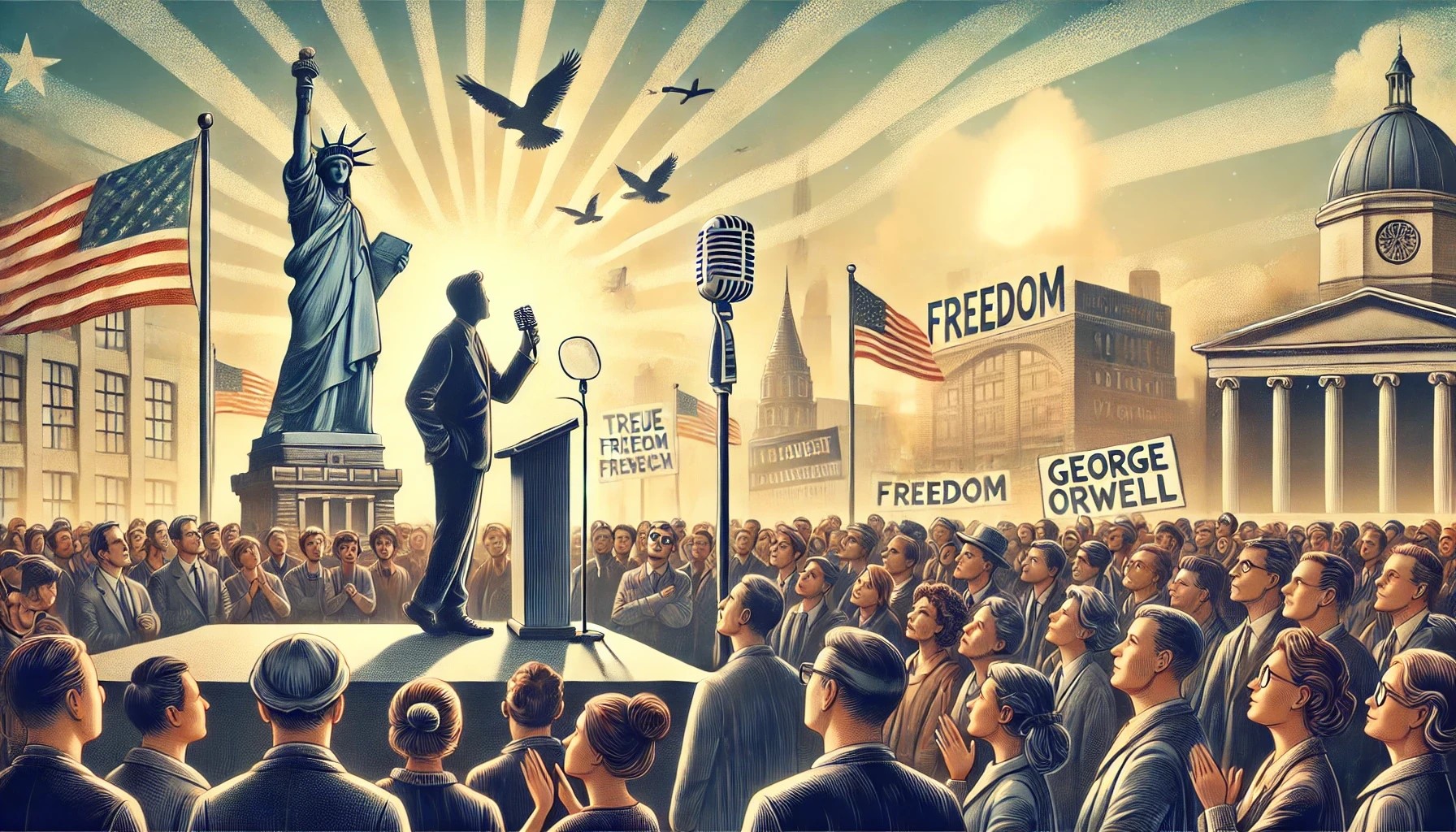
🗽 “True freedom is the right to say something that others don’t want to hear.”
Description: George Orwell in BBC 1940
Source: http://www.penguinbooksindia.com/en/content/george-orwell
Author: BBC
🗽 “True freedom is the right to say something that others don’t want to hear.” – George Orwell 🌟
George Orwell emphasizes the essence of true freedom as the ability to speak out, even when it’s unpopular. Value the freedom of speech. Use your voice to speak truth and promote understanding. Stand up for your right to express yourself honestly, even if your words challenge the status quo or make others uncomfortable. 🌟🗣️
Today, take a moment to reflect on the importance of free speech in fostering a vibrant and open society. Courageously share your perspectives and listen to others, knowing that diverse voices contribute to a richer dialogue and greater understanding. Remember, your honest expression not only empowers you but also paves the way for progress and change. 🌍💬
Embrace the responsibility that comes with this freedom by speaking with integrity and respect. Let your voice be a beacon of truth, encouraging others to think critically and engage in meaningful conversations. Together, we can build a world where every voice is heard and valued. 🌟🤝
George Orwell, born Eric Arthur Blair on June 25, 1903, in Motihari, British India, was an influential English writer, journalist, and critic. He is best known for his novels “Animal Farm” and “1984,” which have left an indelible mark on literature and political thought.
Orwell’s early life was marked by a mix of privilege and hardship. His family returned to England when he was a child, and he attended prestigious schools, including Eton. However, his family’s financial struggles influenced his later empathy for the underprivileged. After completing his education, Orwell joined the Indian Imperial Police in Burma (now Myanmar), an experience that deepened his disdain for imperialism and authoritarianism.
In the late 1920s, Orwell returned to Europe and decided to pursue writing. His early works were largely influenced by his experiences with poverty and his political beliefs. “Down and Out in Paris and London” (1933) and “The Road to Wigan Pier” (1937) are notable works from this period, highlighting his observations on poverty and social injustice.
Orwell’s political views became more pronounced during the Spanish Civil War, where he fought for the Republicans against Franco’s Nationalists. His experiences there, documented in “Homage to Catalonia” (1938), solidified his opposition to totalitarianism and deepened his commitment to democratic socialism.
Orwell’s literary acclaim peaked with the publication of “Animal Farm” in 1945 and “1984” in 1949. “Animal Farm” is a satirical allegory of the Russian Revolution and the rise of Stalinism, while “1984” presents a dystopian future where totalitarianism reigns, and individual freedom is obliterated. These works are celebrated for their incisive critique of oppressive regimes and their exploration of themes like surveillance, propaganda, and individual freedom.
Throughout his career, Orwell also worked as a journalist and critic, contributing essays and articles that remain influential. His clear, direct writing style and his commitment to truth and social justice continue to inspire readers and writers alike.
George Orwell passed away on January 21, 1950, in London, due to complications from tuberculosis. His legacy endures through his profound insights into the human condition and his unwavering stand against totalitarianism and oppression.